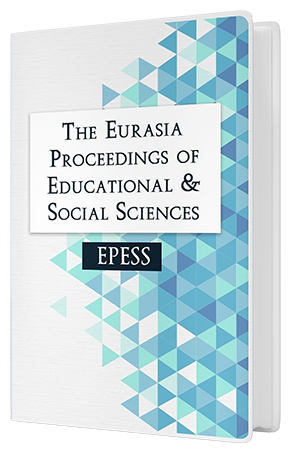Corporate Knowledge Creation and Motivation
DOI:
https://doi.org/10.55549/epess.1412789Keywords:
Corporate knowledge, Knowledge flow, Competitive advantageAbstract
In the present era, the replication and reproduction of products have become commonplace. As a result, the competitive edge primarily hinges on the experiential insights and knowledge that companies possess. In the swiftly evolving landscape of today, continual adaptation and receptivity stand as indispensable factors for our business's triumph. Moreover, the cultivation of robust collaboration amongst employees is held in high esteem. Consequently, these factors underscore the mounting significance of efficient knowledge acquisition, sharing, and management within corporate governance. This has led to a compelling surge in the call for the application and refinement of knowledge management practices. Currently, I am engaged as a project engineer/manager within a company that specializes in the design and construction of solar power plants. This enterprise, established in 2019, is relatively nascent. Nevertheless, it has charted a steady growth trajectory, both in terms of workforce expansion and revenue augmentation. Year by year, it assumes a larger and more influential role within the market. My research will be centered within the confines of this company, leveraging interviews and surveys as my primary research tools. My aspiration is that this approach will furnish comprehensive insights into the pivotal queries at hand. The primary objective of my study will be to juxtapose the perspectives of managers and employees regarding the realm of knowledge management. I intend to delve into its significance, scrutinize the avenues for advancement, and dissect the impediments and perils that may impede its progress.Downloads
Published
Issue
Section
License
Copyright (c) 2023 The Eurasia Proceedings of Educational and Social Sciences

This work is licensed under a Creative Commons Attribution-NonCommercial-ShareAlike 4.0 International License.
The articles may be used for research, teaching, and private study purposes. Any substantial or systematic reproduction, redistribution, reselling, loan, sub-licensing, systematic supply, or distribution in any form to anyone is expressly forbidden. Authors alone are responsible for the contents of their articles. The journal owns the copyright of the articles. The publisher shall not be liable for any loss, actions, claims, proceedings, demand, or costs or damages whatsoever or howsoever caused arising directly or indirectly in connection with or arising out of the use of the research material. All authors are requested to disclose any actual or potential conflict of interest including any financial, personal or other relationships with other people or organizations regarding the submitted work.




